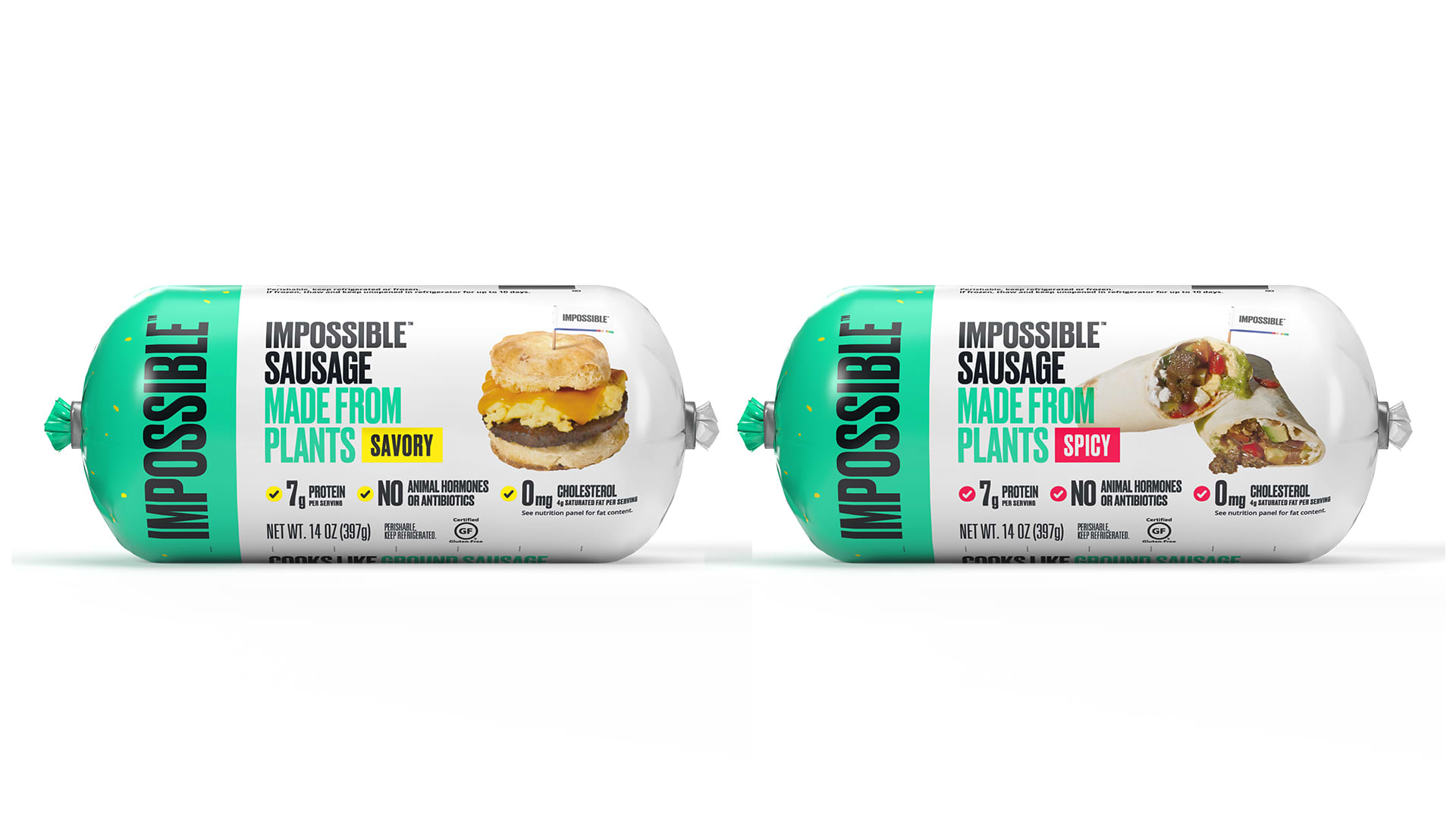Impossible Foods is bringing its meatless sausage to grocery stores

Impossible Foods’ meatless sausage
Source: Impossible Foods
Impossible Foods’ meatless sausage is finally coming to grocery stores, starting Wednesday.
The company first rolled out the sausage alternative to restaurants nationwide last June after launching it at U.S. locations of Restaurant Brand International’s Burger King and Starbucks. Like its Impossible Burger, the plant-based sausage contains soy leghemoglobin, produced from genetically modified yeast and also referred to as heme. The ingredient helps Impossible closely mimic the taste and aroma of real meat.
Kroger, Albertsons, Safeway, Wegmans and Stop & Shop are among the grocery chains that will be carrying the Impossible Sausage.
Impossible is touting the product’s nutritional profile when compared with sausage made from pigs, which tends to have high salt and fat content. According to Impossible, it has 30% fewer calories and 47% less fat. The company also said it uses 79% less water and 41% less land to make than pork sausage. The Impossible Sausage will be available in two flavors: savory and spicy.
Impossible started selling its beef alternative in grocery stores in September 2019 after securing regulatory approval from the Food and Drug Administration for its use of heme. Since then, it’s quickly ramped up the number of retailers who carry its products to more than 20,000 locations, but it has to balance producing enough of its portfolio staple with introducing new products.
Because Impossible is a privately held company, it does not disclose its financial results. However, Impossible President Dennis Woodside said grocery is now a “very meaningful part” of its business, seeing triple-digit growth compared with a year ago as it added to its footprint. Over time, the company is expecting that roughly half of its sales will come from grocery stores.
More than three-quarters of rival Beyond Meat’s U.S. revenue comes from grocery stores. Beyond already sells a sausage alternative in grocery stores.
Woodside said that some retailers will be carrying the Impossible Sausage next to Tyson Foods’ Jimmy Dean sausage, while others will be displaying it next to other plant-based alternatives.
“It will be interesting to see how sales go in both of those locations in the supermarket because those are different buyers with different intents,” he said.
The Impossible Sausage is expected to be 25% to 35% more expensive than animal-based sausage, although retailers choose the price that consumers pay.
Impossible also has plans to release yet another meat alternative this fall: chicken nuggets. Like its launch of its burgers and sausage, the launch will start with restaurants.
“The pace of product launches this fall is ramping up,” Woodside said. “We also have to scale up production at the same time, which is hard.”
Reuters reported in April that the company is preparing to go public sometime in the next 12 months through an initial public offering or a merger with a special purpose acquisition company, or SPAC. Impossible is reportedly seeking a valuation of at least $10 billion, several billion dollars higher than the current market capitalization of Beyond Meat. To date, Impossible has raised $1.5 billion from private investors.
“We’re doing what we need to do to become a large, successful company and, as [CEO Pat Brown] said in the past, eventually becoming public is certainly something that we’ll need or want to do,” Woodside said. “But nothing specific to announce right now other than we’re building a great company.”




